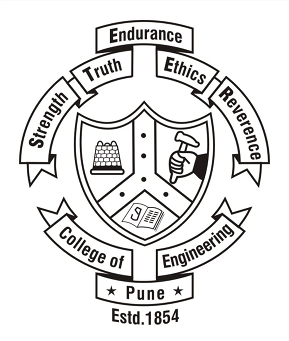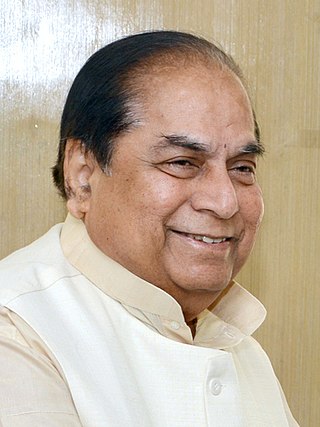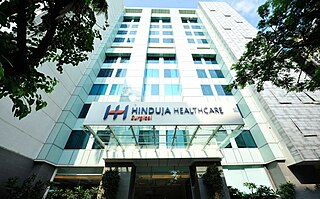
The Indian Institute of Technology Bombay is a public research university and technical institute in Mumbai, Maharashtra, India.

Anil Kakodkar, is an Indian nuclear physicist and mechanical engineer. He was the chairman of the Atomic Energy Commission of India and the Secretary to the Government of India, he was the Director of the Bhabha Atomic Research Centre, Trombay from 1996 to 2000. He was awarded the Padma Vibhushan, India's second highest civilian honour, on 26 January 2009.

The College of Engineering Pune (COEP) Technological University is a unitary public university of the Government of Maharashtra, situated in Pune, Maharashtra, India. Established in 1854, it is the 3rd oldest engineering institute in India, after College of Engineering, Guindy (1794) and IIT Roorkee (1847). The students and alumni are colloquially referred to as COEPians. On 23 June 2022, Government of Maharashtra issued a notification regarding conversion of the college into an independent technological university. On 24 March 2022, both the houses of the state government passed the CoEP Technological University bill, which has conferred a unitary state university status on the institute.

Techfest is the annual science and technology festival of the Indian Institute of Technology Bombay, consisting of social initiatives and outreach programs throughout the year.
Ashok Jhunjhunwala is an Indian academic and innovator. He received his B.Tech. from the Indian Institute of Technology, Kanpur and PhD from the University of Maine. He has been a faculty member at the Indian Institute of Technology Madras since 1981. He is the President of IIT Madras Research Park and Chairman of International Institute of Information Technology, Hyderabad. During his career, he has contributed extensively to technology innovation and adoption in the Indian context.

The economy of the state of Maharashtra is the largest in India. Maharashtra is India's second most industrialised state contributing 20% of national industrial output. Almost 46% of the GSDP is contributed by industry. Maharashtra has software parks in many cities around the state, and is the second largest exporter of software with annual exports over ₹ 80,000 crores.

OrthoCAD Network Research Cell is a federally funded research and development facility in the Indian Institute of Technology Bombay, Mumbai, India. The Laboratory's primary function is the design and development of reconstruction systems for orthopaedic and other applications, the current focus is on mega-implants for limb-saving surgery, mainly for children affected by bone cancer. The Cell later led to the establishment of Biomedical Engineering and Technology (incubation) Centre (BETiC).

Dnyandeo Yashwantrao Patil is a former Indian politician, best known as the governor of Bihar, West Bengal and Tripura. He was a leader of the Indian National Congress from Maharashtra state.

The P. D. Hinduja National Hospital and Medical Research Centre is a multi-specialty, tertiary-care hospital in Mumbai, India. It was founded in 1951 by Parmanand Deepchand Hinduja, in collaboration with the Massachusetts General Hospital, the main teaching hospital of Harvard Medical School, Boston.
Modern education was introduced to Maharashtra region during the 19th century by British colonial administration. Census of 2011 showed literacy rates in the state for males and females were around 78% and 67% respectively. Education at different levels in the state is provided by the state, government supported charities, or private institutions. There are also a number of institutes offering vocational training.

Institute of Chemical Technology (ICT) is a public deemed university in Mumbai, India. It is focused on training and research in the fields of chemical engineering, chemical technology, and pharmaceutical sciences. Established in 1933, the institute was granted deemed university status in 2008, making it the only state-funded deemed university in India. In 2018, ICT was named an institute with a special status per the Empowered Expert Committee and was given the status of Category 1 institute with graded autonomy by the Ministry of Human Resource Development and the University Grants Commission (India). The institute also has regional campuses at Bhubaneswar, Odisha and Jalna, Maharashtra.

Robocon is organised by Asia-Pacific Broadcasting Union (ABU), a collection of over 20 countries of Asia Pacific Region. NHK, Japan had already been organising such contests at national level and also became the host of the first ABU Robocon in 2002. Since then, every year one of the member broadcasters hosts this international event.
Ashwin Srivastava is an Indian venture capitalist who is the cofounder and member of the Board of Idein Ventures, a growth-stage private equity accelerator with operations in India, UAE, and Africa. He has been an entrepreneur since 2010. He is also the co-founder of Great Manager Institute and CEO of Sapio Analytics.
Abhay Karandikar is an Indian educator, engineer, innovator, and administrator best known for his work in the telecommunication sector in India. Currently, he is serving as the Secretary to the Government of India in the Department of Science and Technology, Government of India from 1 October 2023 onwards. Previously, he served as the Director of Indian Institute of Technology, Kanpur from 1 April 2018 to 30 September 2023. Prior to that, Karandikar held a number of positions, including Dean, Head of the Department of the Electrical Engineering, and Institute Chair Professor at the Indian Institute of Technology, Bombay. He was one of the founding members of Telecom Standards Development Society of India and appointed as its first Vice Chairman from 2014 to 2016, and then was appointed its Chairman from 2016 to 2018. Karandikar contributed to conceptualization and establishment of new technical standards work programmes for TSDSI. In 2016, he was awarded with IEEE SA's Standards Medallion for his work to Indian Technology, Policy and Standardization with IEEE guidelines.

Dr. Basant Kumar Misra is a neurosurgeon specialising in treating brain, spine, cerebrovascular and peripheral nervous system disorders, injuries, pathologies and malformations. He is the Vice-President of the World Federation of Neurosurgical Societies, and the former President of the Asian Australasian Society of Neurological Surgeons, and the Neurological Society of India. He is a recipient of Dr. B. C. Roy Award, the highest medical honour in India.

P.D. Hinduja Hospital is a multi-specialty, tertiary-care hospital located in Khar, Mumbai, India, owned and operated by London-based Hinduja Group through Hinduja Healthcare Limited, which also operates Hinduja Hospital. Its chief executive officer is Gautam Khanna.
Somaiya Vidyavihar is an Indian educational trust that operates a network of schools, colleges, and institutions across Maharashtra, Karnataka, Gujarat, and Madhya Pradesh. It was founded by industrialist, educationist, and philanthropist Karamshi Jethabhai Somaiya, a Padma Bhushan recipient, in 1942.
Jyoti Jayant Gogte is an Indian entrepreneur and academic, most notable for her reference textbooks on entrepreneurship titled Startup & New Venture Management (2014) and Roadmap for an Entrepreneur (2024).

Rohit Srivastava is a Himanshu Patel Chair Professor in the Department of Biosciences and Bioegineering at IIT Bombay specialising in medical diagnostic devices, nanoengineered materials and photothermal cancer therapy. He was awarded the Shanti Swarup Bhatnagar Prize for Science and Technology in Medical Sciences in the year 2021 for his contributions to the development of affordable medical devices.













